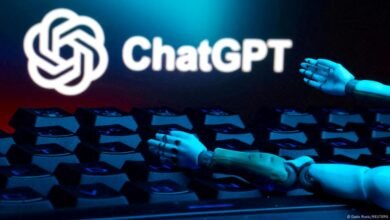Microsoft Cuts Jobs as AI Saves Millions: What’s Next?

▼ Summary
– Microsoft saved $500 million in call center costs using AI, coinciding with layoffs of 9,000 employees, part of a larger 15,000-job reduction.
– AI tools improved productivity in Microsoft’s sales, customer service, and engineering teams, generating over a third of new product code while cutting costs.
– Tech leaders predict AI will replace many jobs, with 43% of managers surveyed already using AI to replace some of their direct reports.
– New legislation and tax incentives are accelerating AI adoption, with minimal worker protections, leaving employees to rely on upskilling initiatives like Microsoft’s $4 billion Elevate fund.
– Experts warn that AI’s reliance on existing human-created content may limit innovation, emphasizing the need for human creativity and updated labor laws to address displacement.
Microsoft’s recent workforce reductions highlight a growing tension between AI-driven efficiency and human job security in the tech sector. The company reportedly saved $500 million in call center costs through AI automation, even as it announced another round of layoffs affecting thousands. This pattern raises critical questions about the future of employment as artificial intelligence reshapes industries.
Internal presentations revealed that AI now generates over a third of Microsoft’s new product code while streamlining customer service operations. Despite these productivity gains, the simultaneous job cuts, totaling 15,000 this year, have sparked debate. Critics argue that companies prioritize cost-cutting over workforce stability, especially when executives promote AI tools to displaced employees.
The timing of these layoffs coincides with Microsoft’s launch of Elevate, a $4 billion initiative aimed at funding AI education for schools and nonprofits. While framed as a social impact effort, skeptics question whether such programs address the immediate fallout for workers. Meanwhile, the newly established AI Economy Institute focuses on ethical applications, though its corporate backing invites scrutiny.
Industry leaders remain divided on AI’s long-term effects. Some predict massive job displacement, with estimates suggesting AI could eliminate half of entry-level white-collar roles within five years. Others, like veteran analyst Ed Bott, compare the shift to past technological revolutions, automating repetitive tasks while creating niche opportunities. However, the pace of change leaves little room for adaptation, particularly without robust policy safeguards.
Current U.S. labor laws offer minimal protection against AI-driven layoffs. While states like California and Illinois regulate algorithmic bias, no federal statutes prevent companies from replacing workers with automation. Legal experts emphasize that existing anti-discrimination laws may apply to AI hiring tools, but enforcement lags behind innovation.
Workers face a stark reality: upskilling is no longer optional. Career strategists stress the need for adaptability and creative problem-solving, skills AI struggles to replicate. Yet as firms like Microsoft invest in training programs, critics warn these efforts often serve corporate interests more than displaced employees.
The broader implications extend beyond tech. Creative professionals, like Google designer Tej Kalianda, caution that over-reliance on AI risks cultural stagnation. “Innovation thrives on human unpredictability,” she argues, noting that AI merely remixes existing data rather than generating original ideas. Financial experts echo this sentiment, predicting a future where human judgment and creativity command premium value.
For now, the burden falls on individuals to navigate this transition. As one ethicist bluntly put it: “If your job isn’t transformed by AI in this decade, you’ll be the exception.” The challenge for policymakers and businesses alike is balancing efficiency with equity, before the gap between technological progress and human welfare grows irreparable.
(Source: zdnet)





